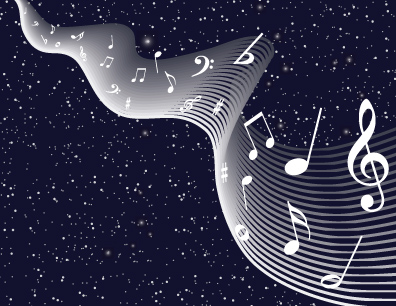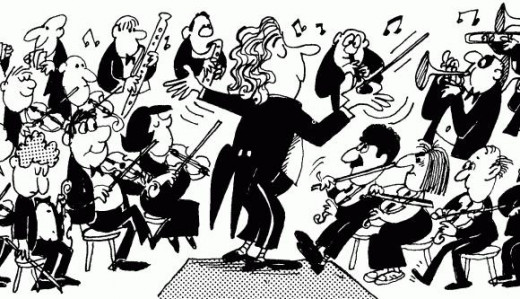The Mysterious Power of Music
Introduction
Scientists have found that music stimulates more parts of the brain than any other human function. Hence there is so much potential in music's power to change the brain and affect the way it works. It has been found that music can also help people with Alzheimer's now because of the reason that we associate our memories with music. A technique called melodic intonation therapy, uses music to direct portions of the brain into taking over for those that are damaged. In some cases, it can help patients regain their ability to speak.

Supernatural Music
There are some accounts of mysterious music contained in history. If a question is asked whether music can kill anyone, what would your answer be? Well, there is an account in history that proves that it certainly can. This account comes from Hungary, when a native composer named Reszo Seress composed a song when his girlfriend left him, in the winter of 1932. Reszo was very depressed the subsequent Sunday and was lying on his bed collecting his thoughts when suddenly a strange tune came into his head and played continuously. He had never heard this tune before.
Adopting this tune he composed a song that he later named as the ‘Gloomy Sunday’. This composition when completed created an intensely sad song which over the years gained the reputation of inducing suicidal tendencies in people. In fact there were more than 180 cases of people committing suicide after listening to it.

Another such case consisted of quite a disturbing event. A young boy asked a local band to play this tune for him. He listened to this tune in an extremely concentrating manner. When the band finished playing it, the boy went out of the place where it was being played and shot himself dead. There were many such incidents after which the broadcasting of this song on radio was banned. Any public performance of this tune became illegal. By 1941 the English translation of this composition had been prepared and released but it just could not have the same effect. The satanic effect of this song; if I may call it, had been slashed down a lot by the time the English version was released. But still the entire effect of this song had not disappeared.

Another report that brings out a rather scary side of the effects that the composition had on people came out in the year 1946. A defense force officer named Gordon Beck who had been working for a squadron stationed in Poona, India, used to listen to this song. He had been advised not to listen to it during his official posting. Not listening to this warning of his colleagues, he once did play the song before he was scheduled to fly a plane during a regular air force activity. While he was flying his plane, he was quite alarmed when the haunting tune returned to his head again and again. He was not able to shake its notorious effect away from his head no matter how hard he tried. It started to mess up his judgment and slowly the composition was all that he could hear. No other sounds were being registered by his brain. This was when he realized the intense effects the composition was capable of causing. He never listened to this song ever after. The cause of this tune being so haunting was never found.
Effects of music on plants. (What the scientific research tells us)
There has been a lot of research undertaken in order to see the effect of music on plants. In one such research a team of seven scientists worked on a sample size of 51 different species of plants. The set up of the experiment was such that the plants were supposed to be exposed to music for 21 days and after such an exposure various measurements were supposed to taken in order to see the effects of music on these plants. It was found that after this exposure the amount of Auxins, which are plant growth hormones, was found to be significantly high in those plants which were exposed to the melodious music rather than the control group of plants. In the control group of plants no such growth spurt was seen. Incidentally, the group of plants which was exposed to rock music and heavy metal music showed significantly lesser amount of Auxins than the other plants. So there were three major findings from this research.
1. Firstly, plans do respond to music.
2. Secondly, plants somehow "love" good music.
3. Thirdly, there were measurable physical changes and biological changes in plans when they are exposed to music.
This eye-opening research completely changed the way researchers look at music. This research clearly shows that music is not only for entertainment it might help us in many many other ways like stress relief and psychological healing. Many more tests are being done to see the positive as well as negative effects of music on humans. Some researchers also believe that if there are positive effects of music on human then in cases like severe depression, sad music might have a really negative effect too. There are yet others who believe that in case of humans, effect of music is more a subject of perspective and belief system than anything else.
Are humans hard wired to respond to music?

Ray Charles Robinson, professionally known as Ray Charles, an American singer, songwriter, musician and composer, who was sometimes referred to as "The Genius" and was nicknamed "The High Priest of Soul," once observed, 'I was born with music inside me. Like my ribs , my kidneys, my liver, my heart. Like my blood. It was a force already in me when I arrived at the scene. It was a necessity for me like food or water.'








